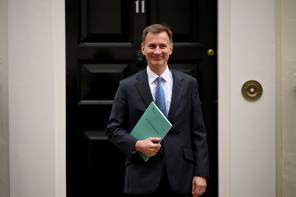
Article 4 / 4
Guide to helping mid-lifers plan for retirementThe incredible shrinking woman’s pension

What is less well-known is that this generation of women are in worse danger than their male peers of ending up in pensioner poverty.
In the UK, middle-aged women, as a group, are not well prepared for their retirement.
In its latest Women and Retirement Report, published in October 2018, Scottish Widows found just 54 per cent of women were saving adequately for retirement. Some 18 per cent were saving nothing at all.
The report also showed that at every age, men’s savings outpace women.
As savers reach their 40s, women have an average of £23,000 in savings and investments but men have more than £50,000.
Lynda Whitney, partner at Aon, says the main factors behind this were gaps in service or reduced hours due to caring responsibilities for children or elderly relatives.
Additional factors include the gender pay gap and women’s longer life expectancy, meaning they also need to save more to have the same comfortable retirement as a man.
Priorities
Dr Matthew Connell, director of policy and public affairs at the Chartered Insurance Institute (CII), explains: “Our Insuring Women’s Futures campaign identified that the average pension wealth of women aged 65 is £35,800, just one-fifth of men the same age and a mere fraction of their financial needs in retirement irrespective of their end of life care costs.”
The CII also found just 8 per cent of women viewed contributing to a pension as their highest priority when starting work, and over half of women in their late 20s said they did not understand enough to make decisions about retirement savings.
Left unchecked – which is largely what has happened – these women hit middle-age without changing their view.
Samantha Seaton, chief executive of MoneyHub, notes by the time people reach middle age, they should have considered how they want to live in retirement and then figured out how to get there.
But while both genders often leave it too late, for women the situation is more complex.
“Even at middle age, women are still more likely to take time off work for childcare, which means less time earning and contributing into their pension,” says Ms Seaton.
“This can also have knock-on impacts on salary going forward.”
Financial future
This smouldering issue is often made worse by a reluctance to tackle it head on.
Rebecca Robertson, director and independent financial adviser at Evolution Financial Planning, hosts sessions aimed exclusively at middle-aged women, who are afraid of confronting the enormity of their finances in retirement.
By using anonymised, real-life case studies, she shows the situations – both good and bad – women can end up in and encourages them to act.
Ms Robertson starts with the basics, such as checking national insurance payments are up to date and estimating retirement dates.
“We need to make sure that women are looking to their financial future,” suggests Ms Robertson.
“Even doing something as simple as downloading an app is a start, but an adviser can give proper advice on saving levels, investment options and charges, and show how even little changes can make a big difference.”
Tsitsi Mutiti, investment manager at Charles Stanley, says advisers needed to enable women to feel comfortable about talking about money and retirement at every step in their lives.

Source: Department for Work and Pensions
“Given our very busy lives and the amount of information our brains have to process in a day, it is important that advisers produce literature that is easy to understand and also encourages individuals to take action,” points out Ms Mutiti.
It is not that women do not understand money, according to Ms Robertson.
“In 85 per cent of households, women look after the finances,” she notes. “This means budgeting for school trips, groceries, holidays…”
It is more a question of prioritising. Women who are worried about how to feed their children are not likely to be focused on how they will provide for themselves in 40 years’ time.
Breaking the mould
Women are also more likely to be self-employed, adds Ms Robertson, which means auto-enrolment does not apply.
“When running their own business, women are more likely to reinvest any profits into it rather than take money out to save for their retirement,” she says.
There is hope that this pattern might soon be broken, however.
Julie Mitchell, wealth planner at Independent Women, says a generation of younger women are keen to be informed about their financial future.
“This generation has grown up with ownership and accountability, much of which is the impact of social media’s recommendations culture,” acknowledges Ms Mitchell.
“These women in their 20s and early 30s want a career, independence and to provide for themselves.”
Ms Mitchell, who produces a regular newsletter for this group, says she has been surprised in the number of enquiries these women have made, looking to secure their financial future.
“Millennial women want security, control and options,” she explains.
Elizabeth Pfeuti is a freelance financial journalist



